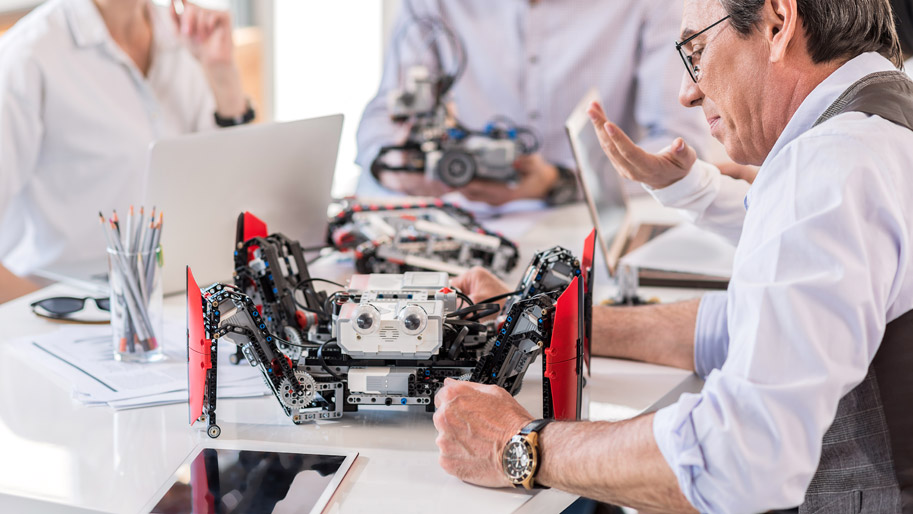Innovation Agents
 © iStockphoto
© iStockphoto
A major part of the development of innovation in Brazil is done in the technology parks, with the support of governments, institutions of technical and higher education, and private enterprise. Other organizations focusing on industrial production and services also contribute to innovative actions throughout the country. Below, read about some successful initiatives.
Senai Institutes of Innovation (ISI)
The main objective of the Senai Institutes of Innovation is to increase the productivity and competitiveness of Brazilian industry, with the creation of agile, innovative, and tailor-made solutions for large, medium and small industries. The National Service of Industrial Apprenticeships (Senai) has 26 institutes, in 12 states. Its objective is the integrated development of products, processes, applied research, the solution of complex problems, and the anticipation of technological trends, thus contributing to increasing the productivity and competitiveness of Brazilian industry.
All of the processes for implementing, certifying, and evaluating the work of the Senai Institutes of Innovation (ISI) are accompanied by Fraunhofer-Gesellschaft, the largest organization of applied research in the world and a cooperator with the German Center of Science and Innovation – São Paulo (DWIH São Paulo).
Senai is a private institution, administrated by the National Confederation of Industries (CNI), which carries on a broad range of professional formation programs, seeking to eliminate the deficiencies of the Brazilian industrial labor force. Its focus is on professional education, from the initial training phase to post-graduate study.
Brazilian Company for Industrial Research and Innovation (Embrapii)
The mission of the Brazilian Company for Industrial Research and Innovation (Embrapii) is to support public and private scientific and technological research institutions in selected areas of competence, so that they carry out projects for developing technological research for innovation, in cooperation with companies from the industrial sector. The organization focuses on company demands and its goal is to share the risk in the precompetitive phase of innovation. The objective is to stimulate industries installed in Brazil to innovate more, so as to maximize the competitive strength of the companies in both the internal and international markets.
Embrapii is linked to the Ministry of Science, Technology, Innovation and Communication (MCTIC), to the Ministry of Education (MEC) and, more recently, to the Ministry of Health, via management contract. Check the Embrapii site for its areas of involvement and the accredited institutions.
Technology Parks and Incubators
According to the study “Parks & Incubators for the Development of Brazil“, published in 2015, in order for Brazil to be able to consolidate and strengthen up to 100 technology parks in the next 15 years, the estimate is that it will be necessary to invest a total of R$ 7.7 billion coming from the Federal, State, and Municipal governments acting in an integrated manner with the already existing programs.
According to a study done by the National Association of Entities Promoting Innovative Enterprises (Anprotec), in association with the Ministry of Science, Technology, Innovation and Communication (MCTIC), the country has 96 technology park initiatives, 28 of which are fully operative. The other 68 are at various stages of development, some in the project stage and the rest being implemented. As for the incubators, a study done in 2016 by Anprote, shows that Brazil has 369 in operation, which give coverage for 2,310 incubated companies and 2,815 graduated companies, generating 53,280 jobs. The annual billings of the companies supported by incubators comes to more than R$ 15 billion.
Primatec was created out of the Inova Funding Authority for Studies and Projects (Finep) and is the first national fund dedicated to the segment of incubators and technology parks, covering the target sectors of information technology and communication (ITC), energy, sustainability, and creative economics.
The areas of involvement of the parks have a wide-ranging list of sectors. The areas most mentioned are information technology and communication, energy, biotechnology, health, and petroleum and natural gas. However, several other areas are also in the focus of the technology parks, such as the aeronautics and aerospace industry, agribusiness, and technologies emphasizing the environment.
